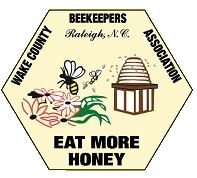6:30 - Workshop - Annual Fall Plant Exchange
6:30- Club Swap Shop Sale (Parking Lot adjacent to Community Center)
Plant Exchange
Fall is the best time to divide most perennials. With the approaching cold weather, plants focus on root development and wait until spring to focus on blooms. Plants suffer less stress with being planted in the fall, and although you should water regularly (at least once a week) after transplanting, and continue until frost, after that, baring any droughts, most plants can handle a lot less attention going into the spring.
Want to participate? Here is how it works: You bring bee-friendly plants you want to exchange, and receive a ticket for each plant you bring, that can be exchanged for plants that others bring. You are welcome to bring other plants that you think people might want, but you will only receive a ticket for bee-friendly plants.
Each plant should be accompanied by a tag indicating what it is, and each group of plants that are the same should have a description on an index card, suitable for taking a picture
Equipment Sale (tools, woodenware honeybee products):
If you plan to sell - be at the parking Lot by 6:15, to set up. The parking lot will be marked for the Sale and look for volunteers to answer any questions. Also any items not sold during Parking Lot Sales must be taken back by the owner and is not eligible for raffle. However, items can be donated for club use.

You can also post your items on the Wake County Facebook page.
If you plan to buy - the event starts at 6:30. Please bring cash
7:00- Regular Meeting
We will hold our annual election for club officers.
Chris Hagwood will provide a presentation on his strategy for over wintering bee colonies in our area. Chris has 10 years experience with honey bees and recently obtained Master Beekeeper certification through the NCSBA. Chris will be overwintering 65 colonies this year and traditionally gets nearly 100% of them through winter without loss. Chris will explain his strategy to limit or eliminate ventilation in winter and why he adopted it, which runs counter to common instruction to ventilate hives in winter.
